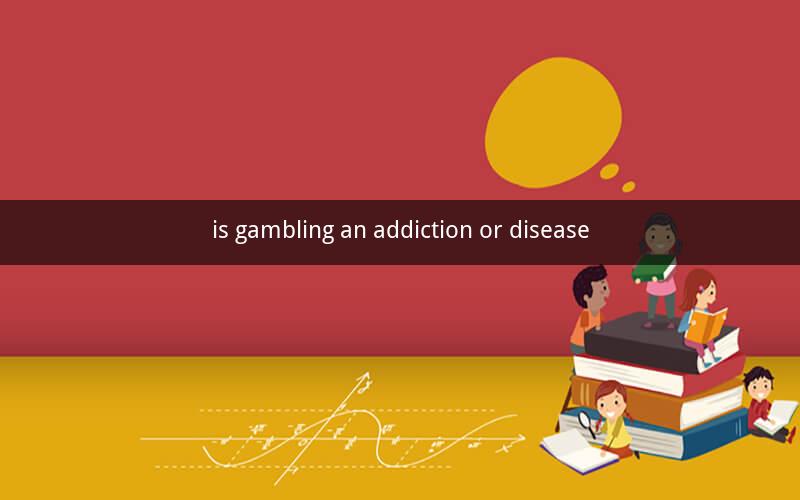
Is Gambling an Addiction or a Disease?
Table of Contents
1. Understanding Gambling
2. The Concept of Addiction
3. The Nature of Gambling Addiction
4. The Physical and Mental Health Impacts
5. Diagnosing Gambling Addiction
6. Treatment and Recovery
7. The Role of Society and Environment
8. Conclusion
1. Understanding Gambling
Gambling, in its simplest form, is the act of wagering something of value on an event with an uncertain outcome. It can take various forms, from betting on sports to playing casino games, lottery tickets, and even betting on the outcome of everyday events. While some engage in gambling as a form of entertainment, others may find themselves drawn in deeper, leading to questions about whether gambling is an addiction or a disease.
2. The Concept of Addiction
Addiction, as defined by the American Society of Addiction Medicine, is a complex brain disease characterized by compulsive drug seeking and use despite harmful consequences. It affects the brain's reward system, leading to a cycle of cravings, use, and consequences. Addiction can manifest in various forms, including substance abuse, gambling, and other behavioral addictions.
3. The Nature of Gambling Addiction
Gambling addiction, also known as problem gambling or pathological gambling, is characterized by an inability to control the urge to gamble. Individuals with gambling addiction may experience a range of emotions, from excitement and tension to anxiety and depression. As with other addictions, the individual may continue to engage in gambling despite knowing the negative consequences, such as financial loss, strained relationships, and mental health issues.
4. The Physical and Mental Health Impacts
Gambling addiction can have significant physical and mental health impacts. Physical health issues may include stress-related conditions, heart disease, and sleep disorders. Mental health impacts can range from depression and anxiety to more severe conditions such as post-traumatic stress disorder (PTSD) and personality disorders.
5. Diagnosing Gambling Addiction
The Diagnostic and Statistical Manual of Mental Disorders (DSM-5) lists gambling disorder as a mental health condition. To be diagnosed with gambling addiction, an individual must meet specific criteria, including preoccupation with gambling, a need to gamble with increasing amounts of money, loss of control over gambling, and continued gambling despite negative consequences.
6. Treatment and Recovery
Treatment for gambling addiction can vary, but it often includes cognitive-behavioral therapy (CBT), which helps individuals identify and change harmful thought patterns and behaviors. Other treatments may include support groups, medication for co-occurring mental health conditions, and financial counseling. Recovery from gambling addiction is a long-term process that requires commitment and support.
7. The Role of Society and Environment
Society and the environment play a significant role in the development and maintenance of gambling addiction. Easy access to gambling opportunities, the normalization of gambling, and marketing tactics can all contribute to the problem. Addressing these factors is crucial for prevention and treatment.
8. Conclusion
Whether gambling is classified as an addiction or a disease is a matter of debate. However, both terms help to describe the complex nature of the problem. Understanding the similarities and differences between addiction and disease can lead to more effective prevention and treatment strategies.
Questions and Answers
1. Q: What are the signs of a gambling addiction?
A: Signs include preoccupation with gambling, loss of control, increased risk-taking behavior, and lying to hide gambling habits.
2. Q: Can gambling addiction be treated?
A: Yes, gambling addiction can be treated with various methods, including therapy, support groups, and financial counseling.
3. Q: Is there a genetic component to gambling addiction?
A: Yes, research suggests that genetics may play a role in the development of gambling addiction, as it does with other addictive behaviors.
4. Q: Can a person be addicted to online gambling?
A: Yes, online gambling can be as addictive as traditional forms of gambling, due to its accessibility and the fast pace of play.
5. Q: Are there any medications for treating gambling addiction?
A: Medications may be used to treat co-occurring mental health conditions, but there are no specific medications for gambling addiction itself.
6. Q: How can family and friends help someone with a gambling addiction?
A: They can offer support, encourage the individual to seek help, and be aware of the risks of enabling the addiction.
7. Q: Can a person overcome a gambling addiction on their own?
A: It can be challenging, but some individuals may overcome their addiction with self-help strategies and strong support networks.
8. Q: Is problem gambling more common in certain demographics?
A: Yes, certain groups, such as men, individuals with a family history of addiction, and those with certain personality traits, may be at higher risk.
9. Q: Can gambling addiction lead to criminal behavior?
A: Yes, individuals with gambling addiction may engage in illegal activities to fund their gambling, such as theft or fraud.
10. Q: How can society reduce the prevalence of gambling addiction?
A: Society can reduce gambling addiction by implementing stricter regulations on gambling, raising awareness, and providing resources for prevention and treatment.